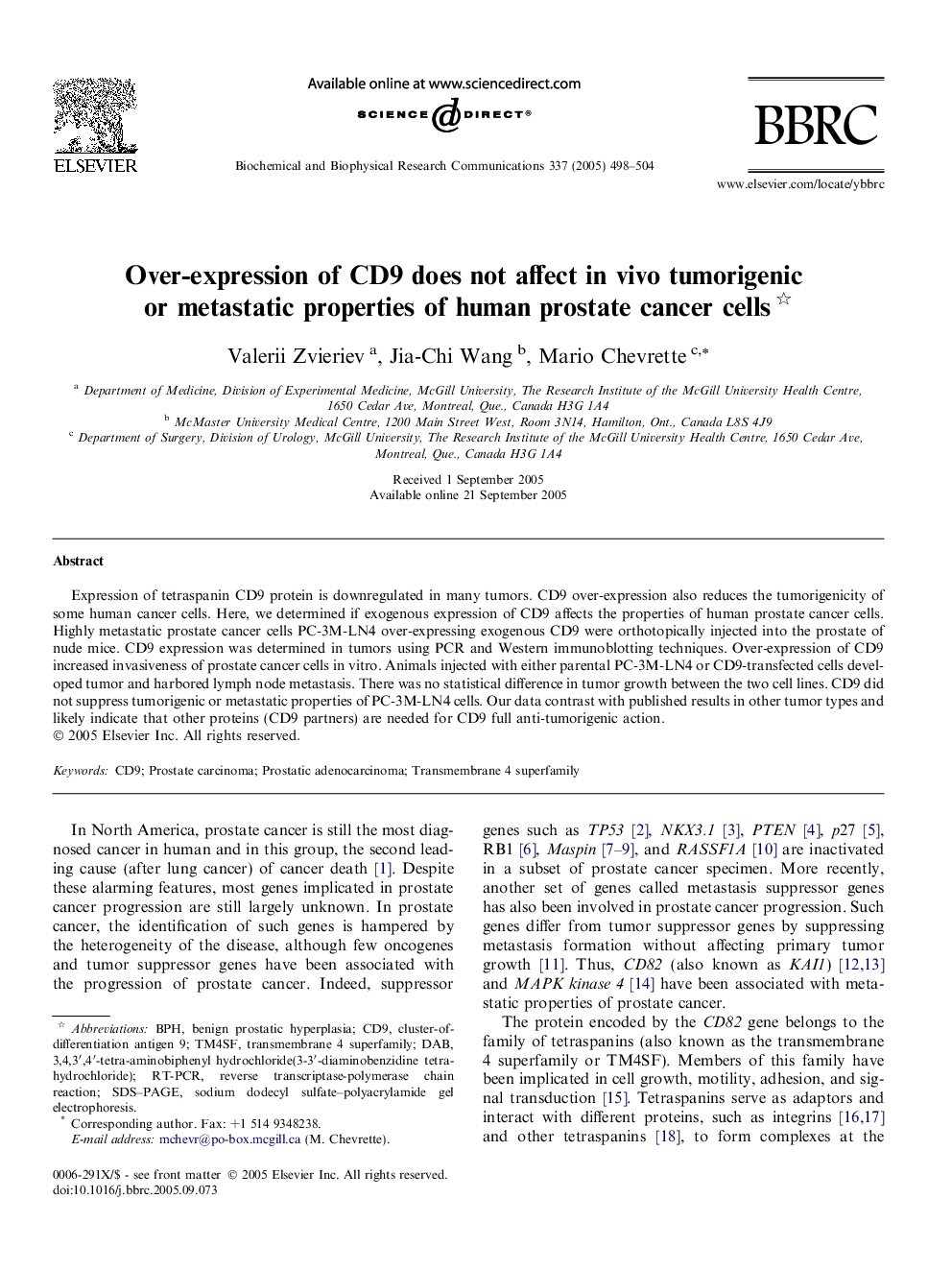| Article ID | Journal | Published Year | Pages | File Type |
|---|---|---|---|---|
| 10767813 | Biochemical and Biophysical Research Communications | 2005 | 7 Pages |
Abstract
Expression of tetraspanin CD9 protein is downregulated in many tumors. CD9 over-expression also reduces the tumorigenicity of some human cancer cells. Here, we determined if exogenous expression of CD9 affects the properties of human prostate cancer cells. Highly metastatic prostate cancer cells PC-3M-LN4 over-expressing exogenous CD9 were orthotopically injected into the prostate of nude mice. CD9 expression was determined in tumors using PCR and Western immunoblotting techniques. Over-expression of CD9 increased invasiveness of prostate cancer cells in vitro. Animals injected with either parental PC-3M-LN4 or CD9-transfected cells developed tumor and harbored lymph node metastasis. There was no statistical difference in tumor growth between the two cell lines. CD9 did not suppress tumorigenic or metastatic properties of PC-3M-LN4 cells. Our data contrast with published results in other tumor types and likely indicate that other proteins (CD9 partners) are needed for CD9 full anti-tumorigenic action.
Related Topics
Life Sciences
Biochemistry, Genetics and Molecular Biology
Biochemistry
Authors
Valerii Zvieriev, Jia-Chi Wang, Mario Chevrette,
